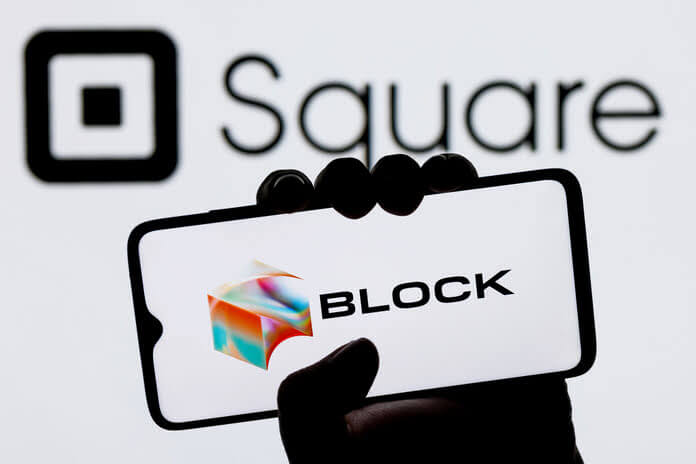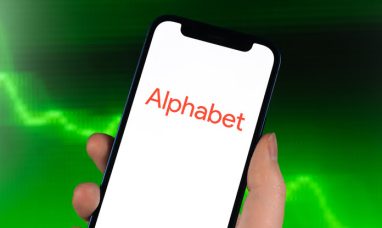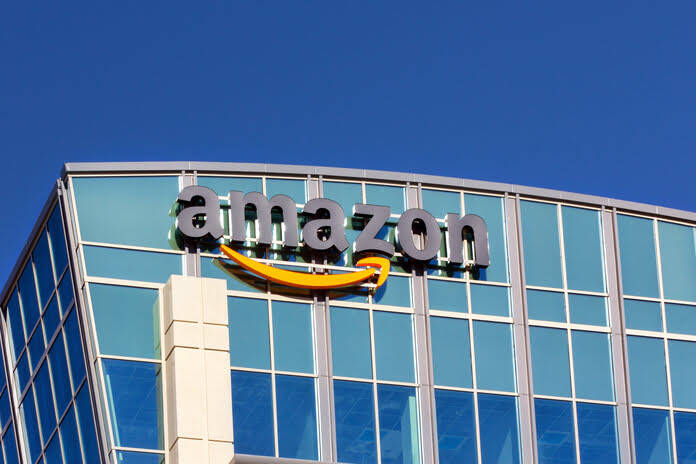The digital currency Bitcoin immediately springs to mind when thinking of SQ stock. Additionally, there is a significant acquisition for Square stock as well as a corporate rebranding to consider.
How resilient Square-parent Block (SQ) will be to a commercial slump in comparison to other digital payment companies is one topic amid mounting concerns about a US recession. Amid the market downturn and Fed rate increases, investors should exercise caution while making any purchases.
SQ stock’s September quarter earnings are due on November 3. Analysts predict EPS of 23 cents, a 38% decrease from a year ago. Revenue is anticipated to increase 17% to $4.49 billion when Afterpay is included. The estimated gross payment volume is $55.22 billion.
Block stock, meanwhile, has decreased by nearly 62% in 2022. Compared to the S&P 500, which is down approximately 18.7%, SQ stock has underperformed.
On January 31, Square completed the acquisition of consumer financing firm Afterpay from Australia. Its expansion has paused. Additionally, “buy now, pay later” (BNPL) fintech firms like Afterpay are subject to more regulation.
A two-sided digital payments ecosystem with products made for both merchant sellers and consumer buyers is what Square Stock intends to create in its core business. People may manage their finances, buy stocks and cryptocurrencies, and more with the help of the Square Cash app.
The prognosis for SQ stock depends heavily on the monetization and growth of Cash App users. During the coronavirus pandemic and amid government economic support, Cash App growth surged. The pessimistic perspective is that once the American economy returns to normal, Cash App growth will slow.
New Corporate Branding Block Stock
Block replaced Square as the company’s name on December 1 while keeping the ticker SQ. The action was made in part to demonstrate the company’s dedication to the blockchain technology that powers cryptocurrencies. Since becoming Block, SQ has seen a 70% decline in stock price.
On October 29, the cost of one bitcoin was close to $20,920. Pressure has being applied to cryptocurrencies.
Since reaching a peak of about $68,900 in November, the price of bitcoin has fallen by 70%. When the price of Bitcoin will bottom out is a crucial concern for Square stock investors.
For businesses that use its POS software and services, the corporation keeps the Square name.
Chief Executive Jack Dorsey claimed that Block had “an ecosystem of ecosystems” as its business strategy during an investor day in May.
According to him, the plan is intended to foster a constructive feedback loop across business units as the company grows. However, Square did not offer multi-year sales and profit predictions.
Square Stock: The Growth of Cash App
The dual class structure of Square stock, which offers insiders extra voting power, is another important consideration.
Square reported that the Cash App currently has 47 million monthly active users, up significantly from 44 million at the end of 2021, during the Goldman Sachs conference in September.
When Square released its earnings results for the March quarter, some Cash App numbers stood out. Despite decreased forecasts, the corporation nonetheless posted earnings, revenue, operating profit, and gross payment volume that fell short of analyst estimates.
Square is expanding its merchant offerings. In December, only 34% of Square’s gross payment volume mix was made up of merchants with annual payment volume of less than $125,000, down from 57% in 2016.
Dorsey served as the CEO of both Square and Twitter (TWTR). However, the executive-sharing arrangement came to an end when Dorsey left his position as CEO of Twitter in late 2021.
Square embraced the cryptocurrency Bitcoin under Dorsey. According to RBC Capital analyst Daniel Perlin, Bitcoin is more than just a means of attracting new customers to SQ stock.
Big Bet On Buy Now, Pay Later With Square Stock
Block intends to develop the infrastructure necessary to support bitcoin-based trade on its merchant platform, according to a recent note by Perlin.
According to him, cryptocurrency and bitcoin “remain a minor and erratic contributor now, but could develop into a more cohesive strategy and financial contributor in the long run.”
Block stated that it would create a mechanism for bitcoin mining in 2021. Additionally, Square established a new business unit to aid programmers in developing Bitcoin-focused financial services applications.
The Afterpay agreement, which was announced on August 1, had a $29 billion initial market value. The deal’s closing value was less than $15 billion because to the significant decline in Block shares.
In the growing “buy now, pay later” business that is encroaching on credit card networks, Afterpay is a competitor. Apple (AAPL) is now a competitor of Afterpay. Affirm Holdings is another competitor of Afterpay (AFRM).
Some investors questioned whether Block needed to purchase a business in this industry rather than expanding its own resources or partnering. The market for “buy now, pay later” products is becoming more competitive.
Afterpay operations expenses are anticipated to cost $1 billion in Block’s 2022 guidance. The “risk profile” of Afterpay has changed due to rising interest rates and the possibility of more regulation, according to a study by UBS analyst Rayna Kumar.
As investors concentrated on the expansion of Square’s consumer Cash App, its stock price increased in 2020 during the coronavirus outbreak. Concerns about the exposure of Square stock to restaurants and small businesses that might shut down due to the coronavirus epidemic were dismissed.
For $297 million in cash and stock, Square purchased the majority of shares in Jay-Tidal Z’s music streaming business.
Block Stock: Increased Competition
With a variety of offerings, SQ stock is up against fierce competition in both the small business industry and consumer financial apps. Rival companies include Shopify (SHOP), the Clover division of First Data (FDC), PayPal Holdings (PYPL), merchant acquirers, and well-funded startup Stripe.
In addition to its $50 million acquisition made in October 2020, Square declared a further $170 million investment in Bitcoin at the beginning of 2021. Analysts claim that the corporation will not include Bitcoin holdings in adjusted results because they are reported as unrealized gains on investments.
The business is also interested in creating a hardware wallet for bitcoin.
Users of the Cash App can purchase, store, and trade Bitcoin. Sales to app users less the cost of buying bitcoin make up Square’s adjusted Bitcoin revenues.
However, analysts claim that Square’s Bitcoin division only generates gross profit margins of about 2%.
Square Stock: An Ecosystem for Payments
Square creates mobile device-plugged credit card readers for retailers. Sellers are eligible for loans from its Square Capital division. There is still a default risk even if Square keeps only 10% of Square Capital loans on its balance sheet.
Before the Covid-19 outbreak, there was disagreement among SQ stock analysts on whether Square revenue growth would pick up again with improved margins after a period of high investments. Peer-to-peer money transfer services like Zelle and PayPal’s Venmo are competitors of The Square Cash App.
Cash App arose as a digital alternative to conventional banks during the coronavirus outbreak. Customers, for instance, used the direct-deposit function of the Cash App to collect government stimulus money. Analysts claim that as stimulus programs came to an end over the summer, Cash App’s growth in gross profit halted.
For users of the Cash App, Square is piloting a short-term borrowing option. Square provides loans ranging from $20 to $200. Users of Cash App are required to repay their loans in full, plus interest, within four weeks.
The Cash App also has a stock trading function. Through a partnership with Marqeta, Cash App provides a debit card.
The negative opinion is that once the coronavirus pandemic subsides, Cash App’s progress will have been short-lived due to low client retention.
The company’s subscription and services revenue is boosted by the Square Cash app, Square Capital, and Instant Deposit. According to analysts, cross-selling new services to its current merchant base is a crucial strategy for Square.
Square intends to acquire Credit Karma’s tax division for $50 million in cash in order to expand its consumer platform. Customers can use it for free.
Moving upward to bigger sellers with block stock
With its origins in serving small companies like farm stands and food trucks, Square has “gone upmarket” and is now focusing on larger corporations.
SQ stock is one of the top 10 fintech firms. Visa (V), Mastercard (MA), PayPal, Fidelity National Information Services (FIS), Fiserv (FISV), and American Express are some of the larger fintech firms (AXP).
Square not only sells credit card readers but also back office and point-of-sale software for managing inventories and other duties.
Recently, Square has concentrated on developing software for many businesses, including invoicing, payroll, and marketing. Additionally, it wants to include its payment capabilities into online storefronts.
Merchants can get payments right away rather than having to wait a few days for settlement thanks to the company’s Square Instant Deposit service.
In the meanwhile, Sutton Bank and Square have partnered to distribute Square Card, a business prepaid debit card, to small company owners using the Square platform.
Square Stock: Should You Buy or Sell It Now?
IBD Stock Checkup reports that Square’s Relative Strength Rating is merely 11 out of a maximum potential 99. The best stocks often have an RS Rating of 80 or higher.
The above chart’s blue line, called the relative strength line, contrasts a stock’s price performance with that of the S&P 500. An RS line that is going downward indicates that the stock is lagging the overall market.
The IBD Composite Rating for Block Stock is 22 out of a possible 99.
IBD’s Composite Rating creates a single, simple rating by combining five different proprietary ratings. The Composite Rating of the top growth stocks is 90 or above.
The Accumulation/Distribution Rating for SQ stock is C. The possible ratings range from the greatest A+ to the poorest E. The grade considers volume and price fluctuations in a stock over the previous 13 trading weeks. The exit of institutional buyers would be indicated by a declining Accumulation/Distribution Rating.
SQ stock has no viable entry point as of October 31. For square stock to be tradeable, a new foundation must form.
Featured Image- Megapixl @ Selagin















